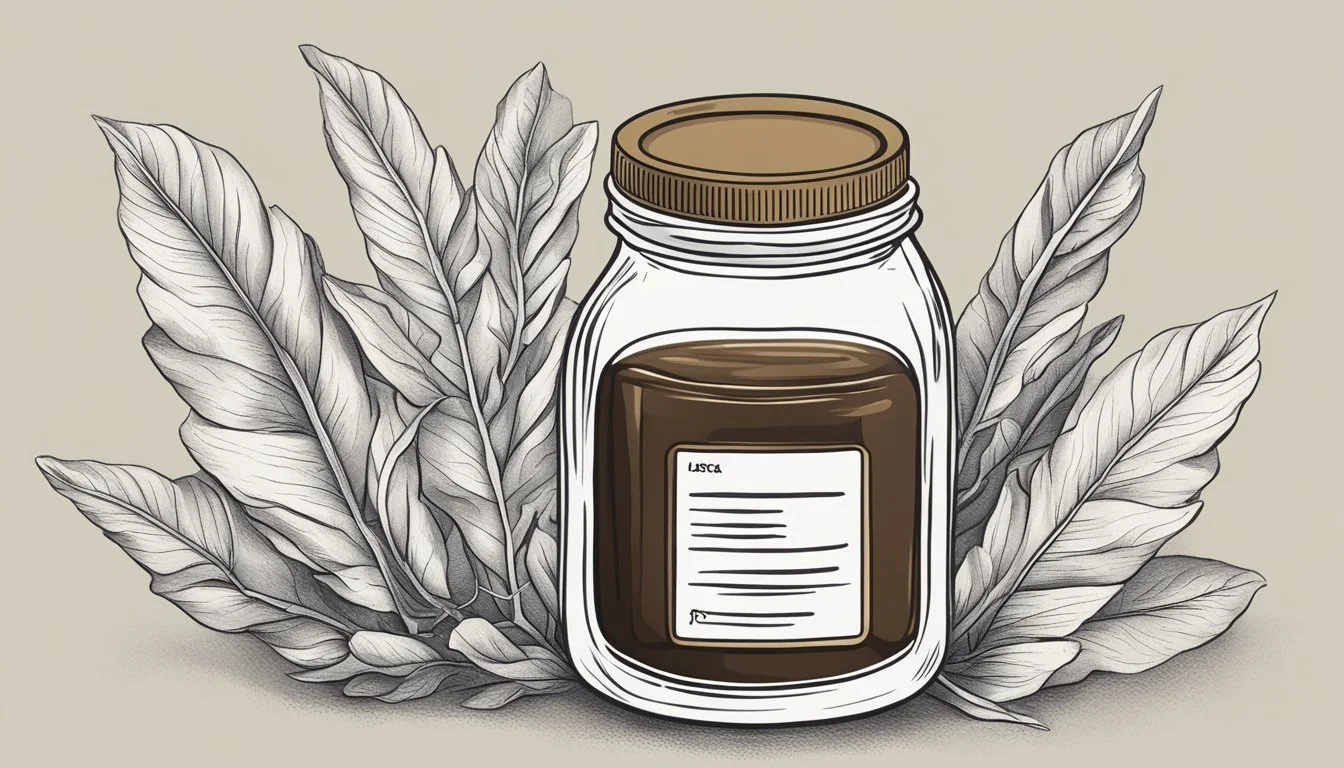Can Diabetics Eat Yacon Syrup?
Exploring Its Health Benefits
For those managing diabetes, finding a sweetener that doesn't spike blood sugar levels is crucial. Yacon syrup, an all-natural, plant-based sweetener, has gained attention for its potential benefits in this regard. Yacon syrup contains a type of sugar called fructooligosaccharides (FOS), which has minimal impact on blood sugar levels.
Derived from the roots of the yacon plant, this syrup is low in calories and serves as a healthier alternative to traditional sweeteners. Its ability to act as a prebiotic also supports gut health, which is an added benefit for those with diabetes. Studies suggest that Yacon syrup can be included in a diabetic-friendly diet without the risk of significant blood sugar spikes.
Yet, moderation is essential. While Yacon syrup is a promising option for diabetics wanting to satisfy their sweet tooth, consuming it in large quantities might lead to digestive issues for some. Thus, incorporating Yacon syrup into a balanced diet requires careful consideration and individualized advice from healthcare providers.
Understanding Yacon Syrup
Yacon syrup, derived from the Smallanthus sonchifolius plant native to South America, is notable for its unique nutritional properties. Rich in Fructooligosaccharides (FOS), it offers benefits that include low glycemic impact, high fiber content, and potential prebiotic effects on gut health.
Origins and Botanical Profile
Yacon, scientifically known as Smallanthus sonchifolius, is a perennial plant indigenous to the Andean regions of South America. It thrives in temperate climates, particularly in countries like Peru and Bolivia. The plant’s tuberous roots are used to produce yacon syrup, which has been a staple in local diets for centuries due to its sweet taste and health benefits.
Yacon plants grow around 1.5 to 3 meters tall and have large, green leaves. The roots, which resemble a sweet potato, are harvested and processed to extract the syrup. This traditional knowledge has now expanded, making yacon syrup popular in health food markets globally.
Composition and Nutritional Value
Yacon syrup is prized for its unique composition. Unlike other sweeteners, it contains a high concentration of Fructooligosaccharides (FOS) and inulin, which account for approximately 50% of its makeup. This high FOS content makes yacon syrup a low-calorie and low-glycemic index sweetener.
For every 100 grams, yacon syrup typically contains about:
Calories: 33-40
Carbohydrates: 7-10 grams
Sugars: 6-8 grams, primarily FOS and inulin
Due to this composition, it is beneficial for those managing diabetes, as it doesn’t cause rapid spikes in blood sugar levels.
Unique Properties of Fructooligosaccharides (FOS)
Fructooligosaccharides (FOS) are a type of fructan and act as prebiotics in the digestive system. This means they help stimulate the growth of beneficial gut bacteria, which can improve overall digestive health. Unlike typical sugars, FOS is not absorbed by the human body entirely and thus has a minimal impact on blood glucose levels.
FOS also contributes to the high fiber content of yacon syrup. Fiber is essential for digestive health, aiding in bowel regularity and potentially alleviating constipation. Since FOS ferments slowly in the gut, it provides lasting energy and sustenance to gut bacteria, translating to improved gut health and better nutrient absorption.
Health Benefits of Yacon
Yacon syrup offers multiple health benefits, particularly for individuals managing blood sugar levels, digestive health, and weight. This natural sweetener is rich in prebiotic fibers and has a low glycemic index, which makes it suitable for various dietary needs.
Role in Blood Sugar Management
Yacon syrup is notable for its ability to help manage blood sugar levels. The root contains fructooligosaccharides (FOS), a form of soluble fiber that the body doesn't digest. These FOS fibers reduce glucose absorption in the intestines, leading to lower post-meal blood sugar levels.
Studies suggest that yacon's low glycemic index helps minimize insulin resistance, making it beneficial for diabetics. Unlike high-glycemic sweeteners, yacon syrup provides a sweet taste without causing significant spikes in blood sugar. This makes it a viable alternative for those needing to monitor their glucose levels closely.
Prebiotic Effects and Digestive Health
Yacon syrup is rich in prebiotic fibers, which are crucial for cultivating healthy gut bacteria. These fibers stimulate the growth of beneficial microbes in the intestines, enhancing the gut microbiome. A healthy microbiome is linked to improved digestion, immune function, and even mental well-being.
The prebiotic fibers in yacon syrup aid in regular bowel movements and can relieve constipation. By nurturing beneficial bacteria like Bifidobacterium and Lactobacillus, yacon promotes a balanced digestive system. This can also reduce digestive issues such as bloating and gas, contributing to overall gut health.
Potential for Weight Management
Yacon syrup is low in calories, making it a smart choice for those aiming for weight loss. It provides sweetness without the high calorie content found in traditional sugars and artificial sweeteners. The FOS fibers also contribute to a feeling of fullness, which can reduce overall calorie intake.
Moreover, yacon syrup's impact on insulin sensitivity can aid weight management. Improved insulin sensitivity can help regulate fat storage and energy use, making the body more efficient at using nutrients. This aspect, combined with its low-calorie nature, makes yacon syrup a beneficial addition to a weight management plan.
Yacon's Impact on Diabetes
Yacon syrup has unique properties that can benefit those managing diabetes, particularly through its low glycemic index and potential as a sugar substitute.
Glycemic Index and Sugar Replacement
Yacon syrup contains a high concentration of fructooligosaccharides (FOS) and inulin. These compounds are recognized for their low glycemic index. This means they don’t cause spikes in blood sugar levels.
Patients with diabetes often struggle with blood sugar regulation. The low glycemic index of yacon syrup can help manage this by providing a sweet alternative without causing significant increases in blood glucose.
Yacon syrup has a sweet taste but does not rely on conventional sugars. This aspect makes it a viable sugar substitute. It can aid in reducing the overall intake of glucose and simple sugars, which is crucial for diabetes management.
Incorporating yacon syrup into the diet may support better insulin sensitivity and reduced blood glucose levels over time.
Comparative Analysis of Sweeteners
Individuals with diabetes often seek sweeteners that do not spike blood sugar levels. This analysis compares Yacon syrup with other natural sweeteners and examines the differences in caloric and carbohydrate content.
Yacon Versus Other Natural Sweeteners
Yacon Syrup vs. Stevia:
Stevia is a popular sweetener derived from the Stevia rebaudiana plant. It has zero calories and does not affect blood sugar levels. Yacon syrup, in contrast, contains fructooligosaccharides which are not absorbed by the body, resulting in fewer calories than traditional sugar, though not zero like Stevia.
Yacon Syrup vs. Maple Syrup:
Maple syrup, while natural, has a higher glycemic index and carbohydrate content. It can affect blood sugar levels more significantly. Yacon syrup’s lower glycemic index makes it a better option for blood sugar management.
Yacon Syrup vs. Erythritol:
Erythritol is a sugar alcohol with very few calories and almost no impact on blood sugar levels. It is similar to Yacon syrup in these respects but lacks the fiber benefits provided by fructooligosaccharides in Yacon syrup.
Caloric and Carbohydrate Content Comparison
Yacon Syrup:
Calories: Approximately 20 per tablespoon
Carbohydrates: Mainly in the form of fructooligosaccharides
Granulated White Sugar:
Calories: About 49 per tablespoon
Carbohydrates: Simple sugars like sucrose
Calories: Roughly 64 per tablespoon
Carbohydrates: Mainly fructose and glucose
Calories: About 60 per tablespoon
Carbohydrates: High in fructose
Monk Fruit Extract:
Calories: Zero
Carbohydrates: Minimal, as it is usually mixed with erythritol or other fillers
The difference in calories and carbohydrates between these sweeteners highlights why Yacon syrup can be beneficial for those managing diabetes. It provides sweetness with fewer calories and a lower glycemic impact.
Culinary Uses and Substitutions
Yacon syrup adds a unique sweetness to various dishes and can replace traditional sugar in recipes. Understanding its properties is crucial for effective culinary use.
Cooking and Baking with Yacon
Yacon syrup is versatile, suitable for cooking and baking. It can be used in dishes like sauces, salad dressings, and marinades.
Bakers use yacon syrup in cakes, cookies, and muffins for its moisture-retaining qualities. Its low-caloric content makes it appealing for those managing their sugar intake.
It’s important to note that yacon syrup may darken baked goods slightly, similar to molasses. Additionally, its sweet yet slightly tangy flavor can add depth to recipes otherwise relying on sugar alone.
Recipe Adjustments and Flavor Profile
When substituting yacon syrup for sugar, consider the sweetness and moisture content. Use a 1:1 ratio, but slightly reduce other liquids in the recipe. Due to its mild, fruity taste, yacon syrup blends well with other flavors, enhancing rather than overpowering a dish.
In baking, particularly in cakes and muffins, the syrup contributes to a moist texture. For savory meals, such as glazes or roasted vegetables, its flavor provides a pleasant contrast.
Understanding how yacon syrup interacts with different ingredients helps maintain the intended texture and taste of the dish.
Potential Side Effects and Concerns
Diabetics considering yacon syrup should be aware of certain potential side effects and limitations. It's important to stay informed about gastrointestinal responses, allergic reactions, and appropriate dosages.
Gastrointestinal Responses
Yacon syrup contains fructooligosaccharides (FOS), which are prebiotics that improve gut health. However, FOS can sometimes cause gastrointestinal issues like diarrhea and bloating. People may also experience gas and general discomfort due to fermentation in the colon.
Individuals with irritable bowel syndrome (IBS) or those sensitive to FODMAPs might find yacon syrup particularly troublesome. Starting with small amounts and gradually increasing the dosage can help minimize these symptoms.
Possible Allergic Reactions
Though rare, allergic reactions to yacon syrup are possible. Symptoms might include rashes, hives, or more severe responses like anaphylaxis. If someone experiences symptoms like swelling, difficulty breathing, or severe itching after consuming yacon syrup, they should seek medical attention immediately.
People with known allergies to related plants should approach yacon syrup with caution. As with any new food product, monitoring for unusual reactions during the initial consumption period is crucial.
Limitations and Recommended Dosage
Research on yacon syrup's benefits and risks is limited. While it can aid in weight control and improve gut health, excessive consumption may lead to issues such as diarrhea and gas.
It's advisable for diabetics to consult healthcare professionals before adding yacon syrup to their diet. The recommended dosage often varies, but starting with 5 to 10 grams per day and adjusting based on individual tolerance can mitigate some risks. Always balance yacon syrup intake with other dietary needs and medical advice.
Consumer Considerations
When considering yacon syrup for diabetics, it is important to examine both the cost and availability as well as the labeling and quality of the product. These factors can greatly affect its affordability and health benefits.
Availability and Cost Factors
Yacon syrup is derived from the Peruvian Ground Apple, an underutilized crop in many parts of the world. This can impact its availability and price, especially outside regions like South America where it is traditionally grown.
Consumers might find it more expensive than other sweeteners. Import costs and limited production areas, such as Peru and parts of New Zealand, contribute to higher prices. It's advisable to compare prices from different sources to ensure a fair deal.
Labeling and Quality Verification
Ensuring the quality of yacon syrup starts with examining the product labels. Look for products that clearly state their fructooligosaccharides (FOS) content, as this is a crucial component for diabetics. Higher FOS content generally indicates a lower glycemic index, beneficial for managing blood sugar levels.
Consumers should also verify that the syrup is free from additives and unnecessary ingredients. Checking for certifications and reviews can help ensure the product's authenticity and quality.









